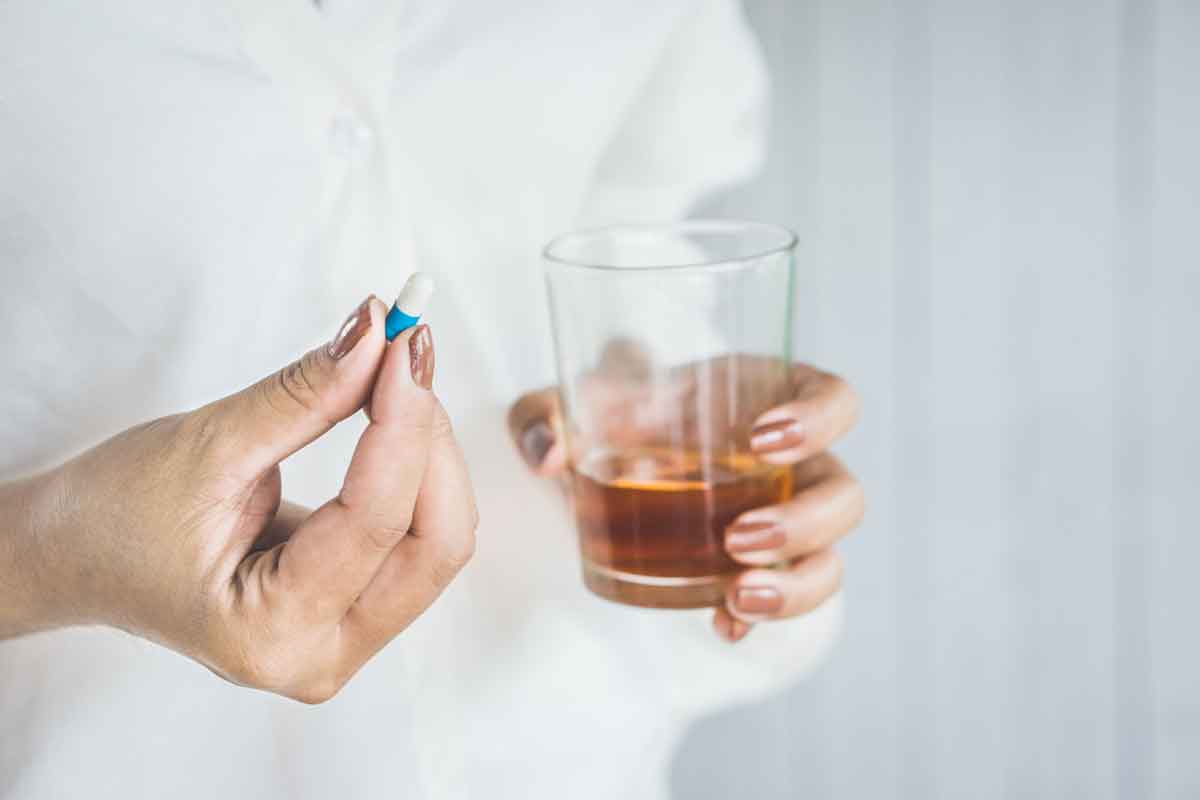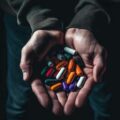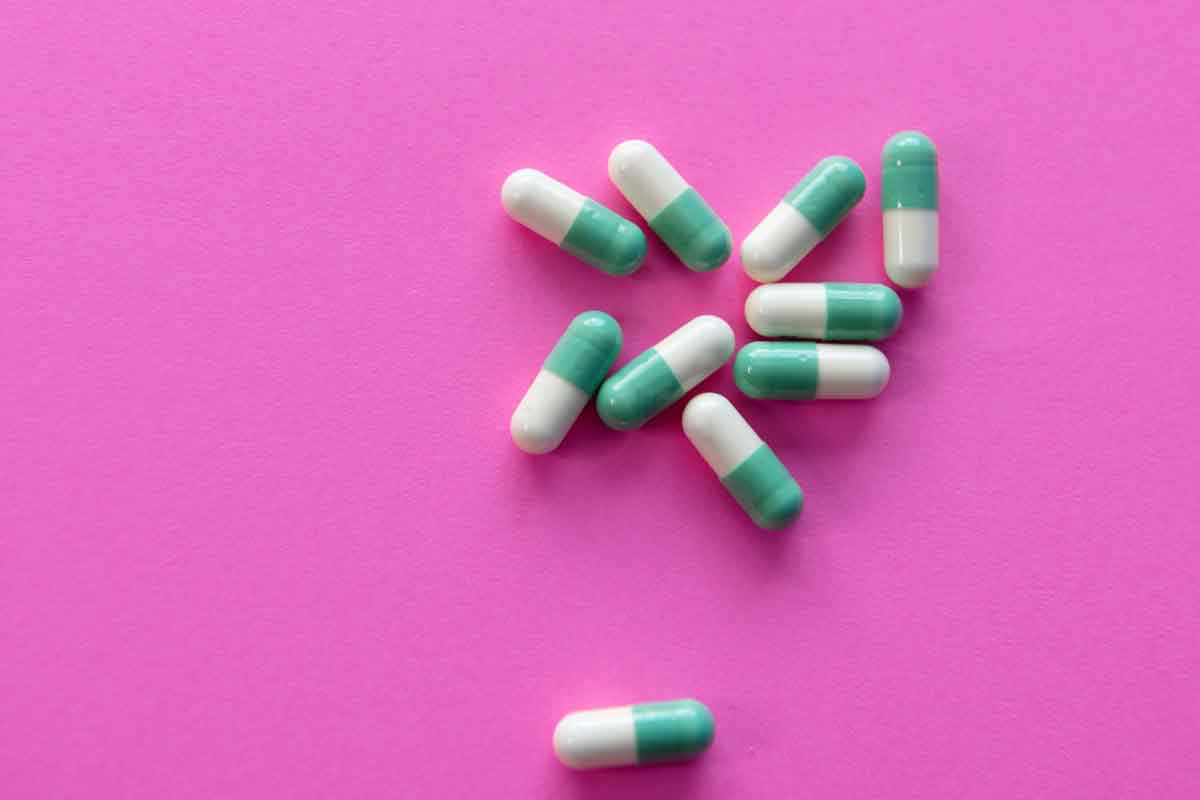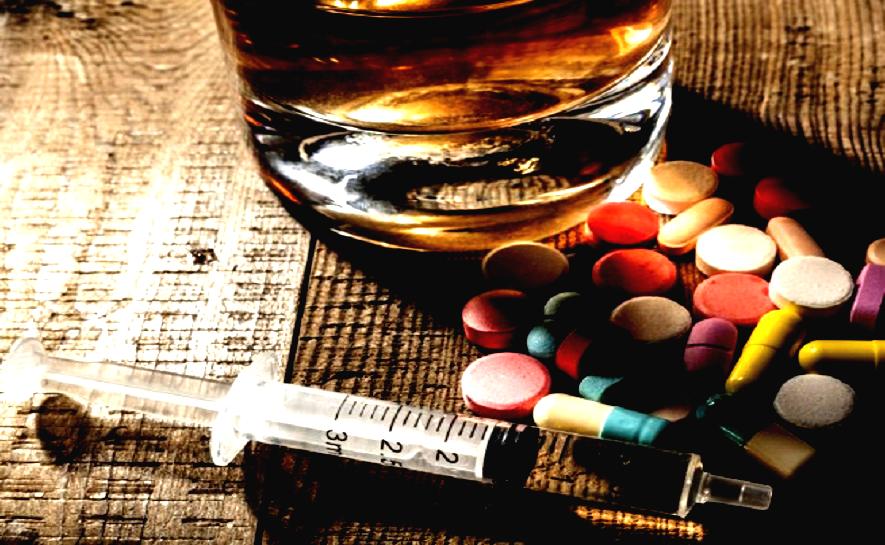For many people struggling with depression or anxiety disorders, antidepressants are often the most effective way to provide much-needed relief.
In simple terms, antidepressants work by increasing the levels of neurotransmitters – naturally occurring chemicals within the brain and body. Neurotransmitters, especially serotonin, are vital for controlling your mood, feelings, and thoughts, and their shortage can negatively affect how you think and feel.
Alcohol, on the other hand, is a depressant, adversely affecting our nervous systems, including blood pressure, respiration, and heart rate. Furthermore, it can also worsen symptoms of depression while increasing the risk of antidepressants’ side effects.
So yes, drinking alcohol while taking antidepressants is strictly prohibited. Unfortunately, many people tend to underestimate the dangers of mixing antidepressant drugs with alcohol, which, in some instances, can even be fatal.
This guide will explore just how dangerous mixing antidepressants and alcohol is, as well as when to seek professional treatment before it’s too late.
Understanding the Relation Between Alcohol Abuse and Depression
Although not every depressed person can develop alcohol dependence, and vice versa, various studies have proven a strong link between alcoholism and mental health issues, including depression.
As one study found, over 60% of people with alcohol use disorder also struggled with depression. This means that these two conditions are often co-occurring. What’s worse, if someone struggles with alcoholism and depression, using antidepressants as part of the treatment can have fatal consequences.
There are numerous reasons for people developing both alcohol dependence and depression. You may start using alcohol as a way to deal with your emotions and anxiety. With time, this can develop into substance abuse and, eventually, fully-fledged alcohol addiction.
Also, since alcohol is a depressant, it worsens depressive symptoms. This creates a vicious, self-destructive cycle, which, in extreme instances, can even lead to death.
Mixing Alcohol and Antidepressants: Dangers & Side Effects
There are numerous reasons why you must avoid drinking alcohol while using antidepressants.
The most obvious reason is that alcohol being a depressant, negatively affects the medication’s efficacy, preventing it from working correctly. Secondly, drinking alcohol often makes depression symptoms worse.
As a result, many people start to increase the antidepressant’s dosage to tackle the adverse effects the alcohol has on their condition. In many instances, such a practice can lead to overdose, which can be fatal.
Another essential consideration here is t hat alcohol can increase the severity of common antidepressant side effects, such as nausea, drowsiness, diarrhoea, vomiting, erectile dysfunction, or decreased libido. If these effects sound familiar, it’s because these are also common symptoms of excessive drinking.
Mixing alcohol and antidepressants can also lead to severe long-term effects, such as liver damage and cardiovascular issues (e.g., dangerously high blood pressure or increased risk of stroke).
However, the exact effects you might experience will heavily depend on your medication type.
Monoamine Oxidase Inhibitors (MAOIs)
Monoamine oxidase inhibitors (MAOIs), which engage with substances known as tyramines, can particularly pose a significant danger when combined with alcohol.
The combination of tyramine with antidepressants has the potential to induce a sharp and hazardous increase in blood pressure, impacting your overall well-being. This could potentially lead to a cerebral haemorrhage or even a stroke.
Selective Serotonin Reuptake Inhibitors (SSRIs)
Selective serotonin reuptake inhibitors (SSiRIs) are frequently prescribed to address symptoms of depression, anxiety, mood disorders, obsessive-compulsive disorder, and ADHD. These medications function by heightening the levels of serotonin within your system, impeding its reabsorption after binding to a cellular receptor.
Typically, SSRIs do not provoke significant unfavourable reactions when alcohol is consumed alongside their use. Nevertheless, these antidepressant medications can potentially induce unpleasant effects on patients, such as drowsiness or nausea, which may be amplified by alcohol.
Tricyclic Antidepressants (TCAs)
Tricyclic Antidepressants (TCAs), including imipramine, amitriptyline, and doxepin, have the potential to influence your coordination and induce drowsiness, particularly in the initial weeks following the commencement of treatment.
While TCAs are generally regarded as compatible with consuming modest quantities of alcohol, some medical practitioners permit moderate alcohol consumption for patients, albeit not immediately after initiating TCA therapy.
Atypical Antidepressants
Atypical antidepressants are a variety of prescription medications that operate through diverse mechanisms, setting them apart from other groups due to their unique modes of action.
Despite their distinct approaches, they share a common principle of modulating neurotransmitter levels, such as serotonin, within the brain. If you take such a prescription medication, it’s best to avoid drinking alcohol, even if your health professional doesn’t clearly state it.
Like most antidepressants, these also come with unpleasant symptoms, which can be amplified when combined with alcohol.

Can You Skip Taking Antidepressants to Drink Alcohol?
So yes, drinking alcohol while taking antidepressants can be extremely dangerous. But what if you skipped a dose or two? Would you be able to drink alcohol then?
While the short answer would be yes (after consulting the matter with a professional, of course), you should never skip taking a prescribed medication unless your doctor says otherwise.
Like other medications, antidepressants only work effectively when taken consistently. Skipping a dose or two, as innocent as it might seem, could cause your depressive symptoms to return, increasing the risk of a relapse (especially since alcohol makes symptoms of depression worse).
Furthermore, many antidepressants come with unpleasant withdrawal symptoms, which may worsen the longer you use them.
If you stop taking your medication abruptly, it can lead to you experiencing the so-called antidepressant discontinuation syndrome, which can manifest itself in fatigue, lethargy, sweating, seizures, vomiting, dizziness, anxiety, mood swings, aggression, or vertigo.
When to Seek Professional Treatment: Moderate Drinking vs Alcohol Use Disorder
While it’s never recommended to drink alcohol while taking antidepressants, it’s possible to mix them moderately when allowed by your doctor. Some doctors allow their patients to drink a little, e.g., a glass of wine daily, while on antidepressants.
That is, of course, if the patient is at low risk of developing a substance use disorder. If, however, that risk is higher (e.g., due to medical or family history), the doctor will most likely prohibit the patient from mixing alcohol with antidepressants.
Another issue is when the patient has already developed an alcohol addiction. In such instances, regular medication treatment is, one, dangerous, and two, ineffective.
Therefore, if you suspect you or your loved one might have depression but also be addicted to alcohol, going to rehab is the safest and most effective option. And when it comes to choosing a treatment centre, the best idea is to seek one overseas, namely, Thailand.
And here’s where The Dawn Rehabilitation Centre comes in, offering you a comprehensive personalised treatment programme that tackles both your addiction and any co-occurring mental health conditions, such as depression, anxiety, PTSD, and insomnia.
How The Dawn Rehab Thailand Can Help with Alcohol Addiction and Depression
With approximately 2/3 of alcoholics struggling with depression, treating these two conditions may often seem impossible. That’s not true. Recovering from depression and addiction is always possible, but it requires a unique approach. And this is something The Dawn offers.
As the leading Wellness Centre and Rehab in Thailand, The Dawn’s treatment programme offers a unique and individual approach to each patient’s case. Our rehab and wellness programmes are crafted by the experienced specialists team, who carefully assess each patient to create the most effective treatment plan for their addiction disorder and co-occurring mental issues.
What’s more, our patients have unlimited access to all on-site amenities while staying in our private accommodations in tranquil surroundings in Chiang Mai, Thailand, away from triggers that may cause relapse.
All that for a fraction of the price charged by the Western treatment centres.
Learn more about our alcohol addiction treatment and depression retreat programmes and see how The Dawn can help you regain control over your life safely and effectively.

Key Takeaways
While antidepressants can provide invaluable aid when fighting depression, mixing them with alcohol is highly irresponsible and, in many instances, dangerous. Therefore, if you tend to drink relatively frequently, you’d need to change your habits if you intend to undergo medication treatment for your mental illness.
The case isn’t that simple for those struggling with alcohol abuse and addiction. In such instances, mixing antidepressants and alcohol can lead to severe long-term mental and physical health risks. In some cases, prolonged drinking while on antidepressants can even be fatal.
That is why undergoing professional alcohol addiction and depression treatment is so vital. That’s something we at The Dawn understand perfectly, providing patients with depression and addiction with a comprehensive treatment programme tailored to their specific circumstances.
Whether you struggle with depression or other mental health issues (e.g., anxiety, PTSD or insomnia) while also battling substance addiction, contact us today and take your life back on track. Acknowledging you may have a problem is the first step toward recovery. We’ll handle the rest.
Related Posts
 Are Antidepressants Addictive?
Antidepressant addiction is fairly rare, but antidepressant abuse is less so. There are so many commonly prescribed antidepressants, and antidepressant use is so common that it’s not surprising to see...
Are Antidepressants Addictive?
Antidepressant addiction is fairly rare, but antidepressant abuse is less so. There are so many commonly prescribed antidepressants, and antidepressant use is so common that it’s not surprising to see...
 The Dangers of Rising Antidepressant Prescriptions in the United Kingdom
The pandemic has spurred an increase in mental health disorders like depression, as well as the use of antidepressant medications to treat them. Understanding the complexities of these drugs is...
The Dangers of Rising Antidepressant Prescriptions in the United Kingdom
The pandemic has spurred an increase in mental health disorders like depression, as well as the use of antidepressant medications to treat them. Understanding the complexities of these drugs is...
 Why Drugs Are Addictive : What Turns a Regular Person into an Addict?
The drugs that harm your body, your relationships and your community have the highest possibility of addiction and abuse. Why are some drugs so irresistible that even people who use...
Why Drugs Are Addictive : What Turns a Regular Person into an Addict?
The drugs that harm your body, your relationships and your community have the highest possibility of addiction and abuse. Why are some drugs so irresistible that even people who use...
 The Complicated Relationship between Alcohol and Anxiety
An alcoholic beverage is often prescribed as a remedy to settle your nerves, but does alcohol really help alleviate anxiety? Science paints a far different picture about anxiety and alcohol...
The Complicated Relationship between Alcohol and Anxiety
An alcoholic beverage is often prescribed as a remedy to settle your nerves, but does alcohol really help alleviate anxiety? Science paints a far different picture about anxiety and alcohol...





